Awards
Stella della Mole
43TFF - Stelle della Mole 2025
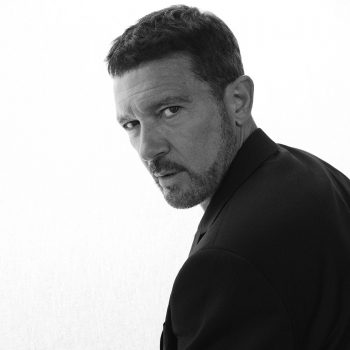
Studied at the Malaga School of Performing Arts and, after graduating, began his career as a stage and film actor, becoming one of the top actors of his generation. In 1982, he was chosen for Labyrinth of Passion, the first of eight movies he made with Pedro Almodóvar. The international success of these films brought him to Hollywood, where he has worked with directors such as Spielberg, Soderbergh, Demme, Rodriguez, De Palma, and Jordan. In 2019, he won the prize for Best Actor at Cannes and the Goya Award for Almodóvar’s autobiographical movie, Dolor y gloria. In 1999, he debuted as a director with Crazy in Alabama.
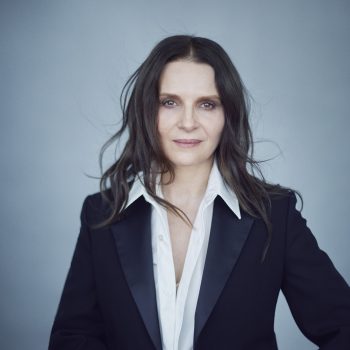
Juliette Binoche
After studying theatre with Jean-Pierre Martino and Véra Gregh, debuted in film with Rendez-vous by André Téchiné (1985), the start of a career during which she has collaborated with important filmmakers such as Godard, Haneke, Cronenberg, Kieslowski, Carax, Assayas, Denis, Kiarostami, and Koreeda. In 1993, she won a Volpi Cup and a César for Three Colors: Blue; in 1997, she won the Oscar for Best Actress in a Supporting Role for The English Patient; and in 2010, she received the Prix d’interprétation féminine at Cannes for Certified Copy. She will be presenting her first film as a director, In-I In Motion, filmed during a dance performance with the choreographer Akram Khan.
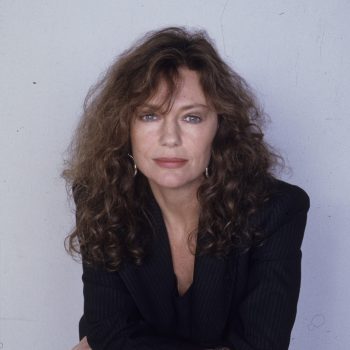
Jacqueline Bisset
She achieved international acclaim as an actress in the early 1970s with Truffaut’s Effetto notte (1973) and Lumet’s Murder on the Orient Express (1974), and then continued her career dividing her time between Hollywood (where she starred alongside Paul Newman in The Man with Seven Nooses, 1972, and No Way Out, 1980, but also in Cukor’s Rich and Famous, 1981, and Huston’s Under the Volcano, 1984), Italy (Comencini’s La donna della domenica, 1975) and France (Chabrol’s Il buio nella mente, 1995, and Ozon’s Doppio amore, 2017). In 2014, she won a Golden Globe for Best Supporting Actress in a Series for Dancing on the Edge.

Daniel Brühl
Born in Barcelona into a German-Spanish family and raised in Cologne, he is one of the best-known actors in recent decades, starring in European and American productions. After making a name for himself in Goodbye, Lenin (2023), he has appeared in famous movies such as Inglourious Basterds (2009), The Fifth Estate (2013), Rush (2013), and Eden (2024), as well as big Hollywood productions such as Captain America: Civil War (2016). His production company Amusement Park produced All Quiet on the Western Front (2022), which won four Oscars, and he directed the film Next Door (2021). He is also the star of series such as The Alienist, The Falcon, and Winter Soldier.
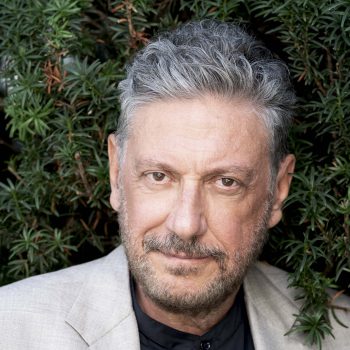
Sergio Castellitto
Actor, director, and screenwriter since the 1980s, he has worked with Scola, Besson, Tornatore, Archibugi, Rivette, Virzì, Amelio, and Bellocchio; at the same time, he has directed movies, collaborating, in particular, with his wife, the author Margaret Mazzantini, on film adaptations of her novels. He starred in the Italian version of the series In Treatment (2013-17) and, always for TV, has portrayed people such as Aldo Moro, Fausto Coppi, Padre Pio, and Rocco Chinnici, as well as imaginary characters such as Lucariello in “Natale in casa Cupiello.” His performances have won him three David di Donatello awards and three Nastri d’argento. He will be presenting the most recent film he has directed, Zorro.
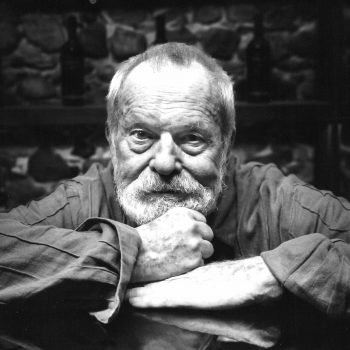
Terry Gilliam
An American with British citizenship, he became famous during the 1970s in England as a member of the Monty Python, participating in the series Monty Python’s Flying Circus (for which he created the animated sequences) and the movies Monty Python and the Holy Grail (1975), Monty Python’s Life of Brian (1979) and Monty Python’s the Meaning of Life (1983). He debuted behind the camera in 1981 with Time Bandits, making a name for himself as the director of visionary films thanks to movies such as Brazil (1985), 12 Monkeys (1995), Fear and Loathing in Las Vegas (1998), and The Man Who Killed Don Quixote (2018). In 1988, the British Academy Film Awards awarded him for his contribution to British cinema and in 2009 gave him their Academy Fellowship for his entire opus.
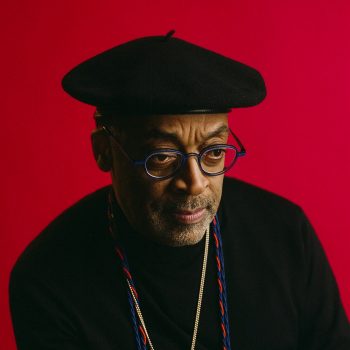
Spike Lee
Born in Atlanta and raised in Brooklyn, he is one of the most important American directors in recent decades, committed to affirming Black identity and culture. The director of famous movies such as Do the Right Thing (1989), Malcolm X (1992), 25th Hour (2002), Inside Man (2005), and BlacKkKlansman (2018), for which he won the Oscar for Best Adapted Screenplay, he has linked his name, in particular, to Denzel Washington, with whom he has made five movies, including his most recent, Highest to Lowest (2025). He has directed documentaries for HBO and ESPN, including When the Levees Broke (2006), as well as commercials for Nike. He is also a professor at New York University.
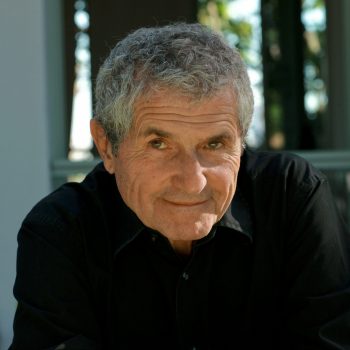
Claude Lelouch
One of France’s leading filmmakers since the 1960s, he found success with A Man and a Woman (1966), which won a Palme d’Or at Cannes and two Oscars, and transformed him into a symbol of popular art house cinema. Over the course of almost 60 years, he has made more than fifty movies, including Live for Life (Golden Globe for best foreign-language foreign film), Cat and Mouse (1975, Grand prix de l’Académie Française), Itinerary of a Spoiled Child (1988, César to Jean-Paul Belmondo), and Les Misérables (1995, another Golden Globe and a César to Annie Girardot). He has also produced and distributed films directed by Abel Gance, Jacques Brel, Ariane Mnouchkine, and Stéphane Brizé.

Vincent Lindon
Achieved his first box office success in L’Étudiante (1988) by Claude Pinoteau, followed by La Crise (1993) by Coline Serreau. Since then, he has enjoyed a prestigious career in art house cinema, collaborating with Jean-Jacques Beineix, Coline Serreau, Nicole Garcia, Claude Sautet, Alain Cavalier, Claire Denis, Xavier Giannoli, Fred Cavayé, Philippe Lioret, and Stéphane Brizé. In 2015, he won the award for Best Actor at Cannes for The Measure of a Man by Brizé, and, always in Cannes, he was the President of the Jury in 2022. In 2024, he received a Golden Lion in Venice for his performance in The Quiet Son by Muriel and Delphine Coulin.
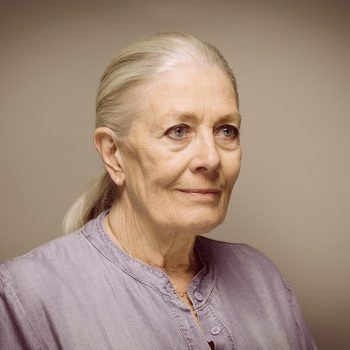
Vanessa Redgrave
The daughter of the actress Rachel Kempson and the actor Michael Redgrave, she trained at the Ballet Rambert and at the Central School of Speech and Drama during the postwar years and is one of the most famous English actresses of all time. She has won an Oscar (Julia, 1978), a Tony (Long Day’s Journey into Night, 2003), two Golden Globes (Julia; the series Women, 2001), two Palmes at Cannes (Morgan!, 1966; Isadora, 1969), and two Lions at Venice (Little Odessa, 1994; Career Golden Lion, 2018). She debuted as a film director in 2017 with the documentary Sea Sorrow and as a writer and director for the stage in 2019, with the play Vienna 1934 – Monaco 1938: A Family Album. In 2022, she was conferred with the title Dame.
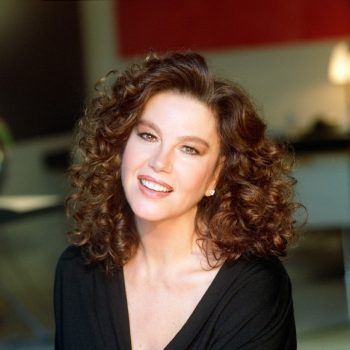
Stefania Sandrelli
One of the most important actresses in the history of Italian cinema, since the early 1960s she has collaborated with generations of great Italian directors (Scola, Pietrangeli, Comencini, Bernardo and Giuseppe Bertolucci, Petri, Monicelli, Montaldo, Magni, Brass, Salce, Corbucci, Virzì, Wertmüller, Archibugi, Bechis, Özpetek, Sorrentino), as well as with foreign filmmakers (De Oliveira, Chabrol, Becker, Melville, von Trotta, Luna, Honoré). She directed the movie Christine Cristina (2009), starring her daughter Amanda. She has also won three David di Donatello awards (1989, 2001, and 2002) and in 2005 received a Career Golden Lion at the Venice Film Festival.
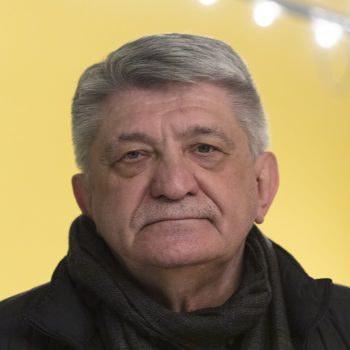
Aleksandr Sokurov
One of contemporary cinema’s major directors, during the 1970s he studied film at the VGIK in Moscow, only to interrupt his studies due to conflicts with Goskino. He began making movies in the late ‘70s but only gained visibility during the years of perestroika. In 1985, he inaugurated his series of Elegies and starting in the ‘90s, he gained international fame with his masterpieces Mother and Son (1995), Moloch (1999), Russian Ark (2002), and The Sun (2005). In 2011, his film Faust won the Golden Lion at the Venice Film Festival, where he recently presented his Director’s Diary (2025). In 2003, the Torino Film Festival dedicated a retrospective to him.
______________________________________________________________________________________________________________
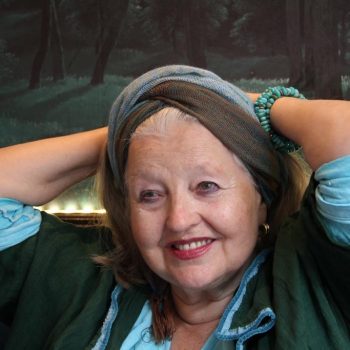
Hanna Schygulla
Born in Königshütte, Germany (now Chorzów, Poland), she is one of the iconic figures of New German Cinema and European cinema from the 1960s onwards. Renowned for her collaboration with Rainer Werner Fassbinder, she starred in several of his films, including The Bitter Tears of Petra von Kant (1972), Effi Briest (1974), The Marriage of Maria Braun (1979), and Lili Marleen (1981). Over the course of her long career, which began in the late 1960s, she has worked with many other acclaimed directors, such as Godard, Ferreri, Scola, Von Trotta, Wajda, Saura, Schlöndorff, Gitai, Tarr, and Ozon. In 1983, she won the Best Actress award at Cannes for La storia di Piera, and in 2010 she received a Golden Bear for Lifetime Achievement in Berlin.
